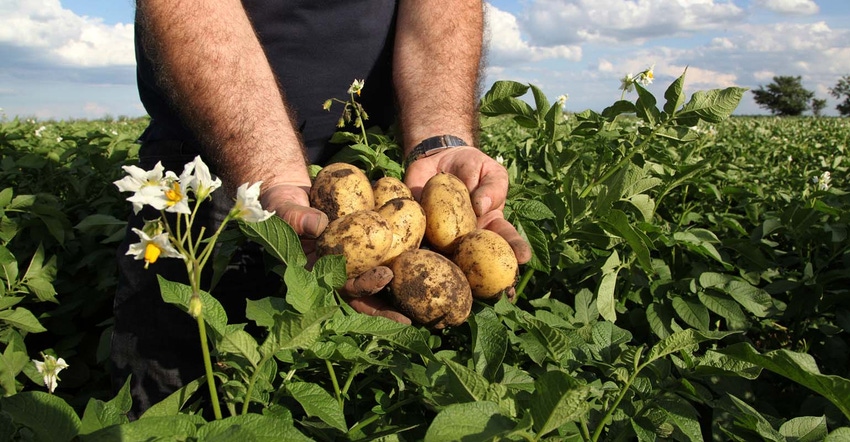August 10, 2018

The J.R. Simplot Company has executed a joint intellectual property licensing agreement with Corteva Agriscience, Agriculture Division of DowDuPont, and the Broad Institute of MIT and Harvard for foundational CRISPR-Cas9 and related gene editing tools.
The technology provides Simplot with another avenue to bring desirable traits forward in certain fruits and vegetables and advance products to the market in the United States. Simplot provides a full line of fresh, frozen and chilled offerings that include potatoes, avocados and strawberries.
Using gene editing technology such as CRISPR-Cas9, bruising and browning of potatoes can be reduced, eliminating some of the 3.6 billion lbs. of potato food waste each year.
Each year, 35% of fresh potatoes worth $1.7 billion are lost because of waste from poor storage or shelf life according to the Journal of Consumer Affairs. Avocados, strawberries and other fruits and vegetables have similar losses and gene editing technology like CRISPR-Cas9 genome editing tools may be able to reduce that significantly.
"We're excited to add CRISPR-Cas9 technology to our platform of tools aimed at providing more sustainable produce for the industry," said Susan Collinge PhD, Vice President of Simplot Plant Sciences. "These pioneering tools may enable growers to achieve higher yields on less land resulting in fewer pesticides, water and labor needs while extending the quality of a consumer's favorite foods."
Comprehensive intellectual property rights allow entities to apply scientific tools as widely as possible. To enable such access, Corteva Agriscience and Broad Institute have agreed on a joint non-exclusive licensing framework for agricultural use. The license to Simplot represents the first time that Corteva Agriscience and Broad Institute have jointly provided a license of CRISPR-Cas9 genome editing tools to an agricultural company.
"We applaud Simplot for taking the initiative to broaden their portfolio of food technologies to further enhance sustainability and reduce food waste," said Neal Gutterson, Chief Technology Officer at Corteva Agriscience. "CRISPR-Cas9 offers farmers and consumers so many great benefits. It's exciting to see a company with such a strong innovation track record putting CRISPR-Cas9 to work."
"Our goal is to maximize the scientific impact of CRISPR-Cas9 for improving agriculture, and our joint licensing agreement offers the opportunity to provide much broader access to help researchers reduce food waste, limit pesticides, and improve drought resistance, while promoting safe and ethical uses of groundbreaking technologies," said Issi Rozen, Chief Business Officer of the Broad Institute.
Under its biotechnology regulations, USDA does not regulate or have any plans to regulate plants that could otherwise have been developed through traditional breeding techniques as long as they are not plant pests or developed using plant pests.
Source: J.R. Simplot Company
You May Also Like




